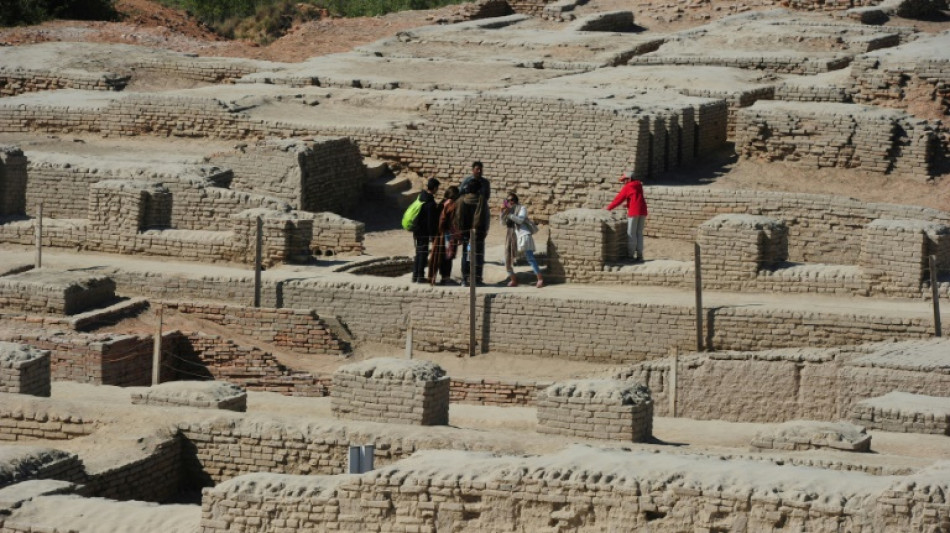
-
 Steelers' Metcalf suspended two games over fan outburst
Steelers' Metcalf suspended two games over fan outburst
-
Salah, Foster take Egypt and South Africa to AFCON Group B summit

-
 Napoli beat Bologna to lift Italian Super Cup
Napoli beat Bologna to lift Italian Super Cup
-
Salah snatches added-time winner for Egypt after Zimbabwe scare

-
 Penalty king Jimenez strikes for Fulham to sink Forest
Penalty king Jimenez strikes for Fulham to sink Forest
-
Kansas City Chiefs confirm stadium move

-
 Liverpool rocked by Isak blow after surgery on ankle injury
Liverpool rocked by Isak blow after surgery on ankle injury
-
US stocks push higher while gold, silver notch fresh records

-
 Deadly clashes in Aleppo as Turkey urges Kurds not to be obstacle to Syria's stability
Deadly clashes in Aleppo as Turkey urges Kurds not to be obstacle to Syria's stability
-
Is the United States after Venezuela's oil?

-
 Trump admin halts US offshore wind projects citing 'national security'
Trump admin halts US offshore wind projects citing 'national security'
-
Right wing urges boycott of iconic Brazilian flip-flops

-
 From misfits to MAGA: Nicki Minaj's political whiplash
From misfits to MAGA: Nicki Minaj's political whiplash
-
Foster grabs South Africa winner against Angola in AFCON

-
 Russia pledges 'full support' for Venezuela against US 'hostilities'
Russia pledges 'full support' for Venezuela against US 'hostilities'
-
Spotify says piracy activists hacked its music catalogue

-
 Winter Olympics organisers resolve snow problem at ski site
Winter Olympics organisers resolve snow problem at ski site
-
Fuming Denmark summons US ambassador over Greenland envoy

-
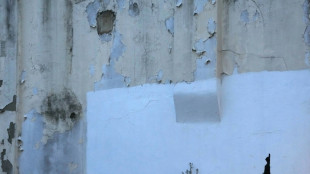 UK's street artist Banksy unveils latest mural in London
UK's street artist Banksy unveils latest mural in London
-
Rugby players lose order challenge in brain injury claim

-
 UK singer Chris Rea dies at 74, days before Christmas
UK singer Chris Rea dies at 74, days before Christmas
-
Last of kidnapped Nigerian pupils handed over, government says

-
 Zambia strike late to hold Mali in AFCON opener
Zambia strike late to hold Mali in AFCON opener
-
Outcry follows CBS pulling program on prison key to Trump deportations
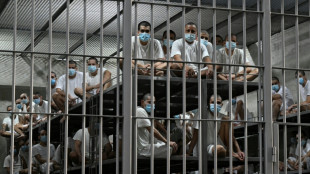
-
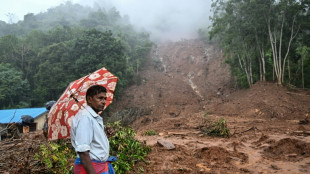 Sri Lanka cyclone caused $4.1 bn damage: World Bank
Sri Lanka cyclone caused $4.1 bn damage: World Bank
-
Billionaire Ellison offers personal guarantee for son's bid for Warner Bros

-
 Tech stocks lead Wall Street higher, gold hits fresh record
Tech stocks lead Wall Street higher, gold hits fresh record
-
Telefonica to shed around 5,500 jobs in Spain

-
 McCullum wants to stay as England coach despite Ashes drubbing
McCullum wants to stay as England coach despite Ashes drubbing
-
EU slams China dairy duties as 'unjustified'

-
 Italy fines Apple nearly 100 mn euros over app privacy feature
Italy fines Apple nearly 100 mn euros over app privacy feature
-
America's Cup switches to two-year cycle

-
 Jesus could start for Arsenal in League Cup, says Arteta
Jesus could start for Arsenal in League Cup, says Arteta
-
EU to probe Czech aid for two nuclear units
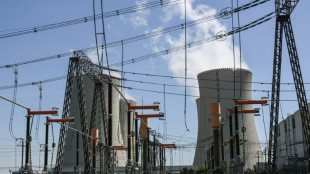
-
 Strauss says sacking Stokes and McCullum will not solve England's Ashes woes
Strauss says sacking Stokes and McCullum will not solve England's Ashes woes
-
Noel takes narrow lead after Alta Badia slalom first run

-
 Stocks diverge as rate hopes rise, AI fears ease
Stocks diverge as rate hopes rise, AI fears ease
-
Man City players face Christmas weigh-in as Guardiola issues 'fatty' warning

-
 German Christmas markets hit by flood of fake news
German Christmas markets hit by flood of fake news
-
Liverpool fear Isak has broken leg: reports

-
 West Indies captain says he 'let the team down' in New Zealand Tests
West Indies captain says he 'let the team down' in New Zealand Tests
-
Thailand says Cambodia agrees to border talks after ASEAN meet

-
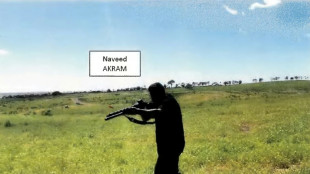 Alleged Bondi shooters conducted 'tactical' training in countryside, Australian police say
Alleged Bondi shooters conducted 'tactical' training in countryside, Australian police say
-
Swiss court to hear landmark climate case against cement giant
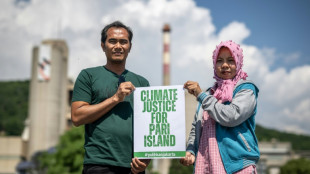
-
 Knicks' Brunson scores 47, Bulls edge Hawks epic
Knicks' Brunson scores 47, Bulls edge Hawks epic
-
Global nuclear arms control under pressure in 2026

-
 Asian markets rally with Wall St as rate hopes rise, AI fears ease
Asian markets rally with Wall St as rate hopes rise, AI fears ease
-
Jailed Malaysian ex-PM Najib loses bid for house arrest

-
 Banned film exposes Hong Kong's censorship trend, director says
Banned film exposes Hong Kong's censorship trend, director says
-
Duffy, Patel force West Indies collapse as NZ close in on Test series win


Climate change 'main threat' for world heritage sites
One of the world's first cities came close to being wiped off the map during tragic floods this summer in Pakistan. Though Mohenjo Daro survived, it has become a symbol of the threat global warming poses to humanity's cultural heritage.
Built in around 3000 BC by the Indus civilisation in modern-day South Asia, Mohenjo Daro was not swept away by the floods, most likely thanks to the genius of its designers.
Perched high above the Indus river, the city was equipped with a primitive drainage system and sewers, meaning much of the floodwaters could be evacuated.
Nearly 1,600 Pakistanis died in the floods and 33 million others were affected in a disaster "probably" made worse by global warming, according to World Weather Attribution, a network of researchers.
The ancient metropolis "could have disappeared with all the archaeological traces" it contains, said Lazare Eloundou Assamo, the director of the World Heritage programme at UN agency UNESCO.
The Pakistani site was "a victim" of climate change and was "very lucky" to still be around, exactly 100 years since it was first discovered in 1922, Assamo said.
Fortunately, "the situation is not catastrophic" in Mohenjo Daro, said Thierry Joffroy, a specialist in brick architecture who visited the site on behalf of UNESCO.
Despite ground sinking in some areas and water damage to some structures, the site "can be repaired," Joffroy said.
- 'Huge impact' -
For 50 years, Paris-based UNESCO has compiled a list of World Heritage sites, significant places that are deemed worthy of protection, and is marking the milestone this week in Greece.
"To protect this heritage ourselves... is to confront the consequences of climate disruption and the loss of biodiversity. It's the main threat... that we assess in a tangible way," UNESCO director Audrey Azoulay told the conference in Delphi on Thursday.
Of its 1,154 World Heritage sites, "one site in five, and more than a third of natural sites, already see this threat as a reality," she said.
"We are experiencing many more incidents of floods, hurricanes, cyclones, typhoons," said Rohit Jigyasu of the International Center for the Study of the Conservation and Restoration of Cultural Property (ICCROM).
"We have these climate-related disasters, which are having a huge impact on sites, for example Mohenjo Daro," he said.
Huge forest fires have scorched the Rocky Mountains in Canada, which are a world heritage site, and this year flames came within 15 kilometres (nine miles) of Delphi as heatwave intensify the severity of wildfires across the Mediterranean basin.
In Peru, meanwhile, landslides occurred this year at the foot of Machu Picchu in the Andes mountains.
Other less noticeable changes can also have serious consequences.
In Australia, the protected Great Barrier Reef is experiencing bleaching episodes due to rising water temperatures.
In Ghana, erosion has washed away part of Fort Prinzenstein, which is conserved as a notable slave trading post.
- Termites and drought -
"Slow factors" that do not have an immediate impact pose "new kinds of risks in many of these sites," Jigyasu said.
These include invasions of wood-eating termites in areas that were previously either too dry or too cold for the insects to thrive.
In other countries, the drying out of soil due to declining rainfall can have a "destabilising" effect on some heritage sites, said Aline Magnien, director of the French state-funded Laboratory for Research on Historical Monuments.
Under drought conditions, "the soils contract and... make the foundations move", then "swell suddenly when it rains", which causes cracking, she said.
When parched and hard, they absorb less water, which promotes flooding.
"We may have certain heritage sites that we will not be able to save, that we will not be able to transmit, which will perhaps be doomed to disappear", said Ann Bourges, a researcher from the French culture ministry.
"It's not just the heritage that is affected when you lose part of it, but all the social system around it," added Bourges, who is also secretary general of the International Council of Monuments and Sites (Icomos), an NGO.
In Mongolia, archaeological sites have been abandoned then looted because "the population no longer had access to water", Jigyasu added.
Expected water shortages in the future could also lead to an increase of conflicts in which important heritage sites might be lost.
P.Martin--AMWN


